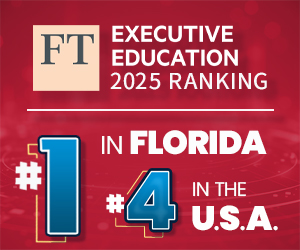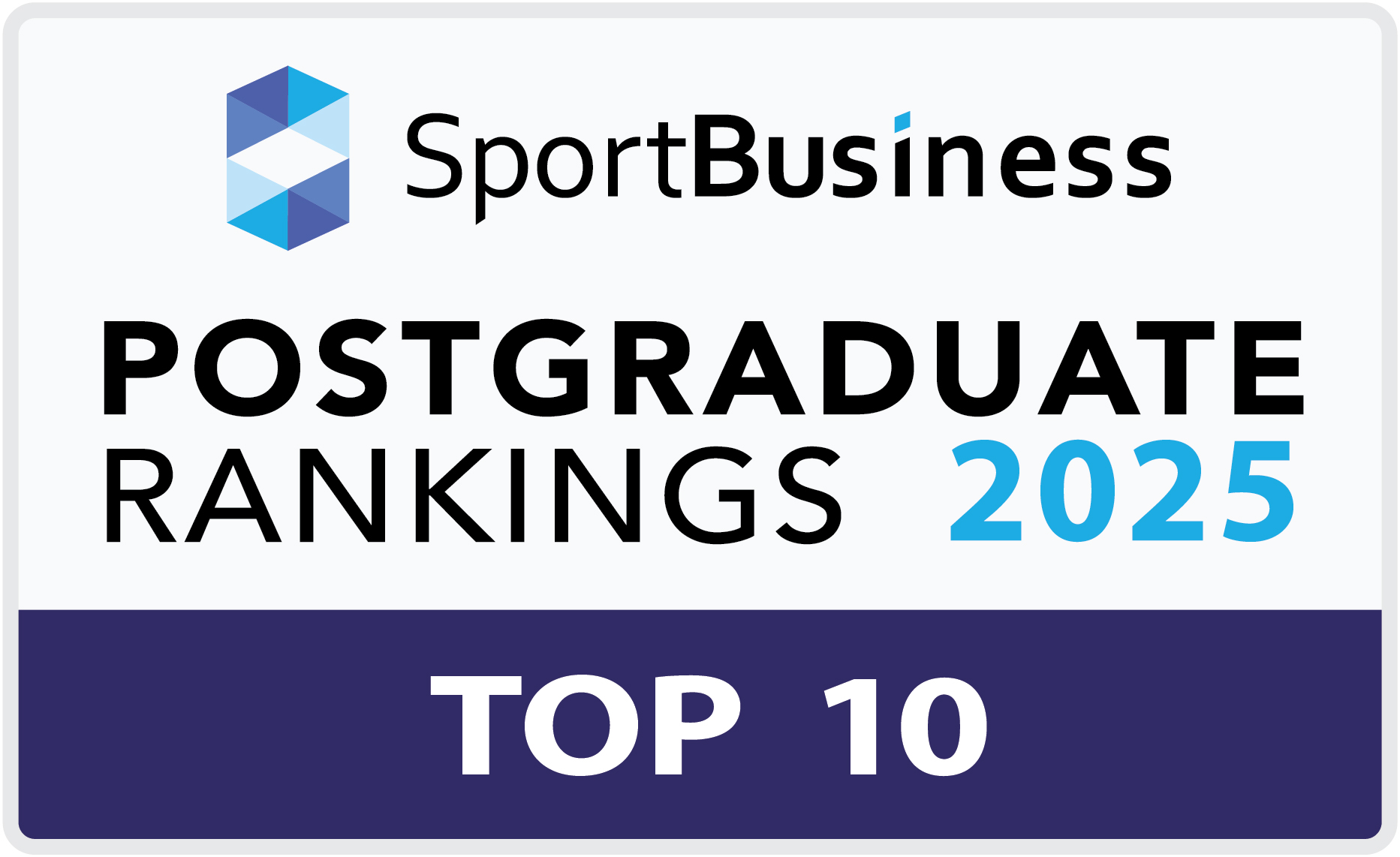Curriculum
The 30-credit Professional Master of Science in Business Analytics (MSBA) program consists of coursework emphasizing Artificial Intelligence, Business Intelligence (BI), Blockchain and Digital Business Transformation, Social Media and Web Analytics, data mining and advanced business analytics to IT project management, management information systems and technology. Courses expose students to software, tools and methods to extract, curate, preserve, analyze, mine, visualize, and present structured and unstructured business data. Prior coursework in business is not required. *Software/tools used in courses (subject to change).
|
Required Coursework - 10 courses (30 credits) |
||
|
Core Curriculum - 8 courses (24 credits) |
||
|
Management Information Systems and Technology (ISM 6026) (3 credits) |
Study and evaluation of information systems: types, development and use. Emphasizes understanding information systems in the context of managerial use, problems, and opportunities. *Microsoft Office 365; Microsoft Project |
|
|
Business Innovation with Artificial Intelligence (ISM 6427) (3 credits) |
Provides a business perspective of artificial intelligence (AI) and other emerging technologies as drivers of innovation in businesses. Students learn how AI is used in practice across organizations and industries, how to plan, manage and maintain AI projects, and how to address the AI challenges and implications for the organization and society. * IBM Watson Studio; IBM Cloud |
|
|
Introduction to Business Analytics and Big Data (ISM 6404)
(3 credits) |
Provides an understanding of the business intelligence and business analytics processes and techniques used in transforming data to knowledge and value in organizations. Students also develop skills in analyzing data using generally available tools (e.g. Excel). * Microsoft Excel & Tableau |
|
|
Advanced Business Analytics (ISM 6405) (3 credits) |
An in-depth examination of business analytics methods of visualization, data mining, text mining and web mining, using various analytical tools. In a laboratory setting, investigates applications for smaller firms. * Python, R & MySQL Workbench |
|
|
Data Mining and Predictive Analytics (ISM 6136) (3 credits) |
Introduces the core concepts of data mining (DM) and its techniques, implementation and benefits. Identifies industry branches that most benefit from DM, such as retail, target marketing, fraud protection, health care and science, and web and e-commerce. Detailed case studies and using leading mining tools on real data are presented. * Analytical Solver Platform (XLMiner) & Rapid Miner |
|
|
Social Media and Web Analytics (ISM 6555) (3 credits) |
Covers concepts and techniques for retrieving, exploring, visualizing and analyzing social network and social media data, website usage and clickstream data. Learn to use key metrics to assess goals and return on investment and perform social network analysis to identify important social actors, subgroups, and network properties in social media. *Google Analytics, Similarweb, OpenTracker, Facebook Insights |
|
|
Data Management and Analysis with Excel (QMB 6303) (3 credits) |
Solve research and business problems by leveraging the most powerful productivity tool, Excel. Curation, management, analysis, and visualization of information and data are covered by using PowerView, Vlookup, charts, pivot tables, scenarios, functions, macro programming etc. * Microsoft Excel |
|
|
Communication Strategies for Business Professionals (GEB 6217) (3 credits) |
Writing and speaking strategies linked to (1) critical thinking for problem analysis/solution and persuasive proposals and (2) research for decision-making. Students submit papers and presentations from core courses. |
|
|
Electives - 2 courses (6 credits). Select (2) of the following elective courses: |
||
|
Supply Chain Analytics (QMB 6616) (3 credits) |
Develops skills in modeling and optimization techniques for the analysis of strategic, tactical and operational supply chain problems. Problems range from inventory management, distribution planning and facility location to risk management and global sourcing. |
|
|
Database Management Systems (ISM 6217) (3 credits) |
Development of well-formed databases to manage data from initial database design to implementation and query. Applies database management tools and techniques such as data security for use in businesses and government. Available only to graduate students lacking an undergraduate course in database management systems. |
|
|
Blockchain and Crypto Assets: Digital Business Transformation (ISM 6455) (3 credits) |
Digital transformations encompass all organizations, business sectors and society. This course provides a critical understanding of transformative technological innovations such as blockchain, cryptocurrency, NFT and other crypto products, and how they evolve business and society. Business strategies are discussed in the context of these innovations. Appropriate for all business disciplines. |
|
|
Special Topics (ISM 6930) (2-5 credits) |
Prerequisite: Permission of instructor |
|
|
Project Management (MAN 6581) (3 credits) |
Provides a strong foundation in the planning and control of projects. Addresses specific operational issues related to projects in areas such as process re-engineering, new product development, enterprise resource planning, and software development are addressed. Other topics included are project risk management, critical chain project management, contingency planning, and the balanced scoreboard. |
|
|
Supply Chain Management (MAN 6596) (3 credits) |
Provides an understanding of key issues, mechanics, and developments in sourcing and managing the supply chain, which is the connected network of all of the value activities that plan, control, and supply interim and finished product services to customers. |
|
















